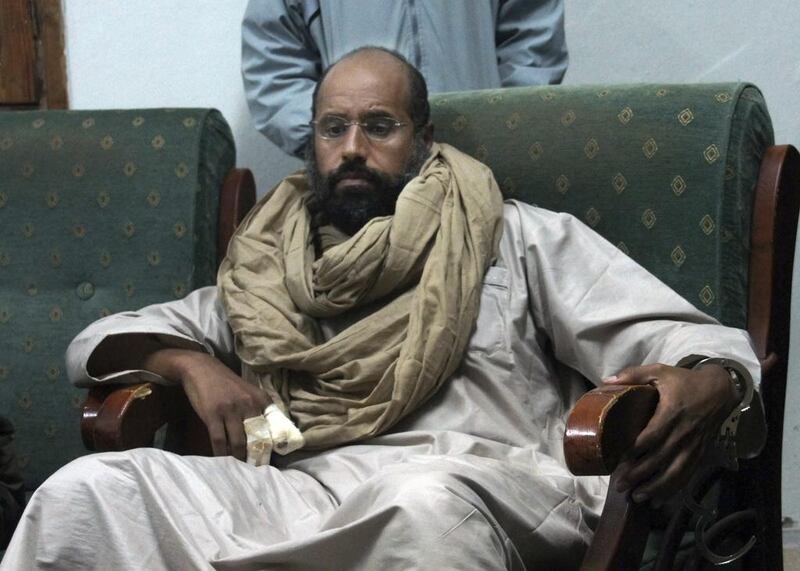The announcement that Saif Al Islam, the second son of Muammar Qaddafi, is out of jail came as no surprise to me nor to those who have been following the political twists in chaotic Libya.
In fact, he was released, however partially, in April 2016 when his lawyer Karim Khan confirmed that he had been freed from jail but would be staying in Zintan with little restriction on his movements.
From last April onwards he was free to meet people, receive whoever he wanted, and contact almost any person anywhere, including his mother and sister abroad. One of his relatives and regular visitors told me last year that “his freedom is only a matter of time”.
Saif Al Islam does not want to leave Libya and securing him inside the country is not an easy task given the chaos and lack of security that persists.
So the announcement only confirmed to his supporters that he is a free man. The Abu Bakr Al Siddiq Battalion, which has been in charge of guarding him while in jail, also offered a written statement.
Neither the battalion nor the lawyer revealed where the free young Qaddafi is now, but he is likely to stay in one of three cities that have been strong supporters of him and his father: they are Bani Walid in the north-east, where he spent nearly a month in the final days of the war of 2011, Brak Al Shati in the in the south-west, or Sebha in the south. Bani Walid is one of the most secure cities in Libya and almost entirely self-governing away from the chaos associated with armed militias.
Regardless of where he will stay, the important question is what role he is likely to play in the war-ravaged country.
He still commands respect and support among large groups of Libyans, particularly those who supported his father in the civil war in 2011, most notably among people in Bani Walid, Sebha, Tarhouna and many other places.
This explains the celebrations that erupted right after news of his release spread. His own tribe is a long time ally of Warfalla, Libya’s largest.
In terms of tribal structure, he is positioned to be the most preferred representative of the victims of those who have been killed, displaced and imprisoned since 2011.
In the cultural tribal setting this is known as “next of kin” whereby the person representing such people has the consent of all tribes represented to forgive crimes and to help national reconciliation.
Given the fact that the UN-brokered Government of National Accord has failed to make any tangible progress in terms of security, stability and economic well-being, Saif Al Islam becomes something of a credible alternative.
While he was very influential in his father’s government, he never had an official role. This makes it hard to convict him of the crimes he is being accused of committing in Libya during the 2011 protests.
Even the legal hurdles he still faces with the International Criminal Court should not present a major problem since Libya is not party to the court and it is not obliged to cooperate with it. If on the other hand his role is deemed as important and constructive to the country, one suspects the ICC case would melt away.
In fact, his defence team is already talking to the ICC to reach a compromise in which the charges against him will be dropped at the international level and left to the national Libyan justice system to deal with him.
Whatever the shifting political sands of Libya will reveal, there is no doubt that this new player has entered the scene with significant public support.
However hard it is to reconcile this statement, some Libyans, who have suffered for the last six years now, see him as the future.
Mustafa Fetouri is a Libyan academic and journalist





